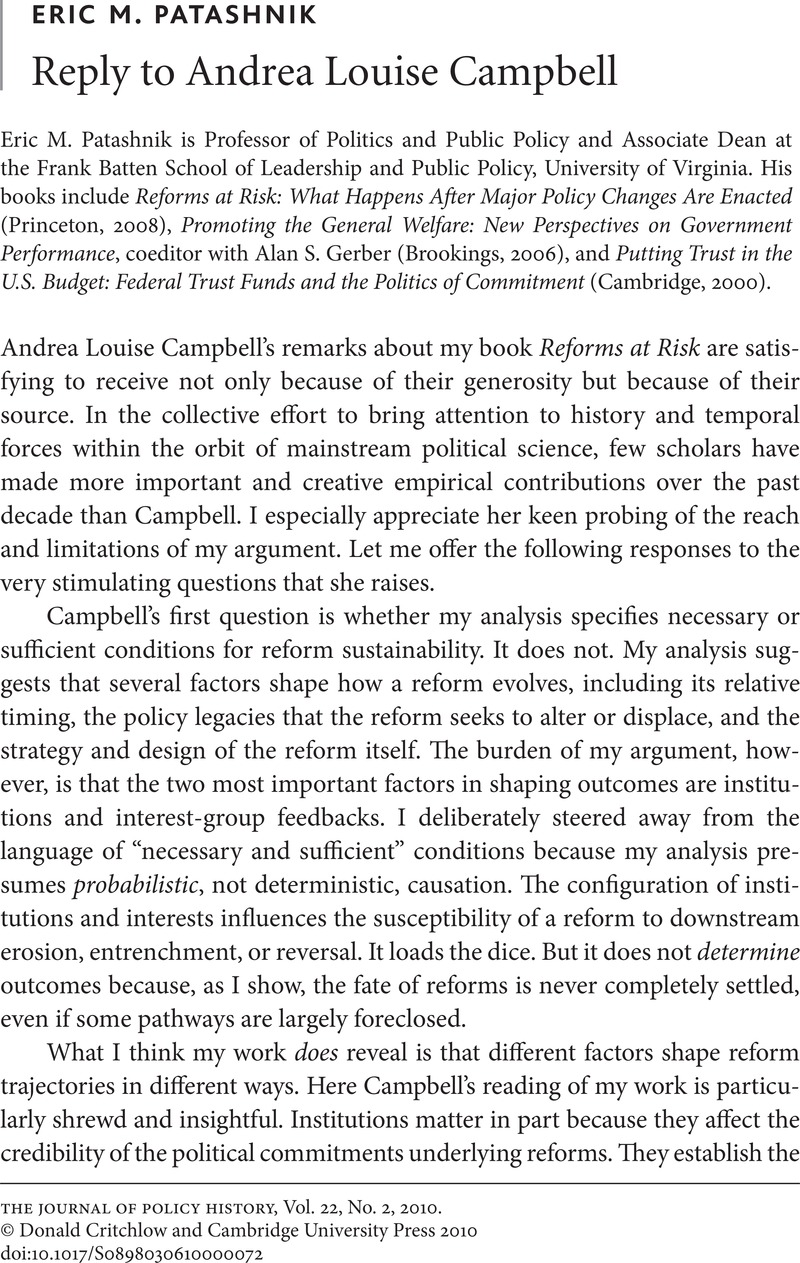No CrossRef data available.
Published online by Cambridge University Press: 31 March 2010

1. Bailey, Michael A., Goldstein, Judith, and Weingast, Barry R., “The Institutional Roots of American Trade Policy: Politics, Coalitions, and International Trade,” World Politics 49, no. 3 (April 1997): 309–38, at 31.CrossRefGoogle Scholar
2. Brown, Lawrence D., New Policies, New Politics: Government’s Response to Government Growth: A Staff Paper (Washington, D.C., 1983).Google Scholar
3. See, for example, Mead, Lawrence M., The New Paternalism: Supervisory Approaches to Poverty (Washington, D.C., 1997).Google Scholar
4. Campbell, Andrea Louis, How Policies Make Citizens: Senior Citizen Activism and the American Welfare State (Princeton, 2003).CrossRefGoogle Scholar
5. Eric M. Patashnik and Julian E. Zelizer, “When Policy Does Not Remake Politics: The Limits of Policy Feedback,” paper presented at the Annual Meeting of the American Political Science Association in Toronto, August 2009.
6. Derthick, Martha, Policymaking for Social Security (Washington, D.C., 1979).Google Scholar
7. See Pierson, Paul, “The Study of Policy Development,” Journal of Policy History 17, no. 1 (2005): 34–51CrossRefGoogle Scholar; and “The Costs of Marginalization: Qualitative Methods in the Study of American Politics,” Comparative Political Studies 40, no. 2 (2007): 145–69.